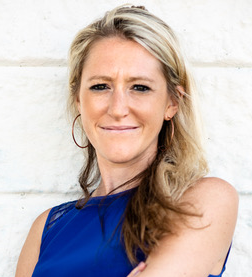 Imagine arriving at the supermarket. You head over to where you normally start your shop only to find there is nothing there. You head to the next aisle; on one shelf is a can of tuna, but not the one you normally get. The panic sets in. It all feels too much so you head home.
Imagine arriving at the supermarket. You head over to where you normally start your shop only to find there is nothing there. You head to the next aisle; on one shelf is a can of tuna, but not the one you normally get. The panic sets in. It all feels too much so you head home.
After washing your hands, you settle on to the sofa and open up your social media feed, only to be bombarded with “use this time to lose weight,” “join this week of fitness,” “#coronacalories.” The messaging is endless. Your brain starts to turn over and over. Those words start to come back. Those feelings of disgust at your own body, at food. The eating disorder starts to talk, reminding you of the sense of control it will give you in this time of uncertainty.
This is the current reality for millions of people around the country; not only those who are still in treatment from an eating disorder, but even those in recovery. As an author and campaigner who talks about my experience of having an eating disorder, I’ve had hundreds of people get in touch with me over the past couple of weeks, fearful of what covid-19 will mean for their recovery.
People with eating disorders tend to have a relationship with food that is characterised by a real sense of guilt and shame. Some of the people I’ve heard from say that their guilt has expanded to cover feeling bad about even buying food, rooted in a concern that more vulnerable people might need it more than them. Other fears are around stockpiling, not being able to get safe foods, and also that the usual support services for many people are being taken away due to the current lockdown situation.
Day units are being shut all over the country, leaving many people afraid of how they’ll cope. While we are in a pandemic and there is so much vital work that needs to be done, it is important that we remember people with eating disorders among this.
With limited resources available, and so many specialist services compromised, there are still things that healthcare professionals (and other people) can do to help:
- If you have patients that struggle with food make sure you check in with them. Give them a call and ensure they have the support that they need.
- Suggest creating a routine for their day to day. Eating disorders thrive off isolation; encouraging people to eat their meals over Skype or FaceTime might help reduce that loneliness and the feelings of guilt. As well as having people they can speak to, make sure that they have thought of distractions and activities on either side of meals to help manage their feelings around food.
- Keeping someone focused on recovery is key at the moment; a simple way to do that is to get them to focus on their motivations for getting well. For me this involved making a list of all the things I want to do when lockdown ends, from travelling to work projects.
- If your services are having to shut down and support will be limited, reassure individuals that you know they might still be struggling. Explain the situation to them so they still feel valid. Eating disorders can make people feel like they are no good at having an eating disorder so by offering these explanations it will massively help individuals.
- Encourage your patients to write a relapse prevention plan so that they can be mindful of the cracks in their recovery. These can then be shared with the key people in their lives so they can start that open dialogue.
- Some services will still be able to offer remote therapy, but for those that can’t, encourage your patients to think about their support network. Make sure they have people they can check in with.
As a society, we can also help by being aware of how much food we are buying so that we don’t contribute to situations where all of someone’s “safe foods” have sold out. We should also be mindful of what messaging we are putting out there on social media and how this might play into harmful narratives around food, weight loss, and exercise.
A lot of people right now are likely struggling with their mental health or feelings around food, so above all it’s important that we keep talking and stay connected.
Hope Virgo is the author of Stand Tall Little Girl and an international advocate for people with eating disorders. Hope helps young people and employers (including schools, hospitals, and businesses) to deal with the rising tide of mental health issues.
Competing interests: Nothing declared.
